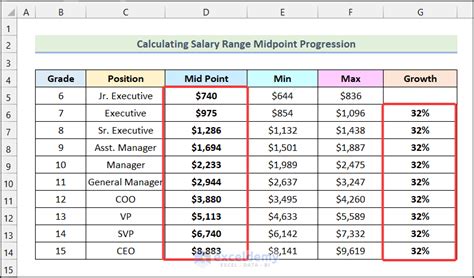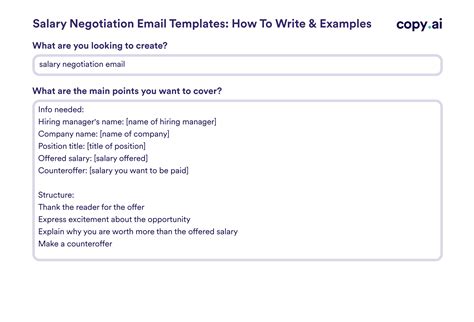You’re scrolling through job listings, and you find it—a role that seems tailor-made for your skills and ambitions. The responsibilities are exciting, the company culture looks great, but when you get to the compensation section, you see two simple words: "Salary: DOE." For many job seekers, this can be a source of confusion and even frustration.
But what if "DOE" isn't a red flag, but an opportunity? Understanding this common acronym is the first step toward negotiating a salary that truly reflects your value. "DOE" simply means Depending on Experience, and it signals that the employer has a flexible salary range in mind. A candidate with ten years of relevant experience and a master's degree could command a salary at the top of that range, while a promising but less-experienced applicant would be offered a figure closer to the bottom.
This guide will break down exactly what DOE means, how to estimate your potential earnings, and how to leverage this information to secure the compensation you deserve.
What Does 'Salary: DOE' Actually Mean?

When an employer lists a salary as "DOE," or "Depending on Experience," they are indicating that compensation for the role is not a single, fixed number. Instead, they have established a budget range and will make an offer based on a candidate's specific qualifications, skills, and background.
Employers use this for several strategic reasons:
- To Attract a Wide Talent Pool: A company might be open to hiring a talented junior-level professional they can train or a seasoned expert who can hit the ground running. A fixed salary might deter one of these groups. DOE keeps the door open for everyone.
- To Maintain Negotiation Flexibility: It prevents the company from anchoring the salary too low (and scaring off top talent) or too high (and being flooded with under-qualified applicants). It turns the salary conversation into a two-way street.
- To Account for a Nuanced Role: Some roles can be scaled. The responsibilities for a "Project Manager" can vary dramatically based on the experience they bring. DOE allows the company to match the pay to the level of responsibility the chosen candidate can handle.
For you, the job seeker, a "DOE" listing is an invitation to do your homework and advocate for your worth.
How to Estimate a 'DOE' Salary Range

While "DOE" doesn't provide a number, it empowers you to find one. The key is to research the market rate for the specific job title, not for the term "DOE." Let's walk through an example using the role of a Data Analyst.
Your first step is to consult authoritative sources to build a realistic salary picture.
- U.S. Bureau of Labor Statistics (BLS): The BLS is the gold standard for objective employment data. For a related role like Operations Research Analyst, the BLS reports a median annual wage of $89,990 as of May 2023. Their data also shows a wide range, with the lowest 10% earning less than $55,680 and the top 10% earning more than $146,810. This immediately shows you how experience and other factors create a broad pay scale.
- Reputable Salary Aggregators: Websites like Salary.com, Glassdoor, and Payscale provide real-time, user-reported data that is often filtered by location and experience.
- Salary.com reports that the typical salary range for a Data Analyst in the United States falls between $74,030 and $97,058 as of early 2024.
- Glassdoor places the estimated total pay for a Data Analyst at $84,539 per year in the U.S., with a likely range between $68,000 and $106,000.
By combining these sources, a candidate for a Data Analyst role can confidently conclude that a reasonable salary range is likely somewhere between $70,000 and $105,000, depending on the key factors below.
Key Factors That Influence Your Salary

These factors are the "experience" in "Depending on Experience." This is where you assess your personal and professional background to determine where you fall on the pay scale you've researched.
###
Level of Education
Your educational background provides the foundational knowledge for your career. For many technical and management roles, a higher degree can directly translate to a higher salary.
- Standard Qualification: A bachelor's degree in statistics, math, or computer science is often the entry point for a Data Analyst.
- Advanced Qualification: A master's degree in data science, business analytics (MSBA), or a related field can push your starting salary to the higher end of the range. Companies are willing to pay a premium for the advanced quantitative and strategic skills learned in these programs.
###
Years of Experience
This is the most direct and significant factor. Employers pay for proven expertise and a track record of success. Experience is typically tiered:
- Entry-Level (0-2 years): You are learning the ropes and applying academic knowledge to real-world problems. Your salary will likely be at the lower end of the market range.
- Mid-Level (3-7 years): You can work independently, manage complex projects, and may begin to mentor junior staff. You should command a salary at or above the median.
- Senior/Lead (8+ years): You are a strategic leader, an expert in your field, and are responsible for driving major business outcomes. Your salary should be at the top end of the range, and you may even exceed it.
###
Geographic Location
Where you work matters immensely. A salary that is excellent in a low-cost-of-living (LCOL) area might be unlivable in a high-cost-of-living (HCOL) city. Companies adjust their salary bands based on the local market. For instance, a Data Analyst in San Francisco or New York City will earn significantly more than an analyst doing the exact same job in St. Louis, Missouri, or Boise, Idaho, to account for differences in housing, taxes, and other expenses. Most salary websites allow you to filter by metropolitan area to get a precise estimate.
###
Company Type and Industry
Not all employers are created equal when it comes to compensation.
- Company Size: Large, established corporations (e.g., Fortune 500 companies) typically have more structured and higher-paying salary bands than small businesses or startups.
- Industry: A Data Analyst working in a high-margin industry like technology or finance will almost always earn more than one working at a non-profit or in the public sector.
- Startups: While a cash-strapped startup might offer a lower base salary, they often supplement it with stock options or other forms of equity, which can have a significant upside.
###
Area of Specialization
Within any given profession, certain specializations are in higher demand. A generalist "Data Analyst" is valuable, but one with deep expertise in a hot niche can command a premium. For example, a Data Analyst specializing in Machine Learning Models, AI Implementation, or Cybersecurity Analytics possesses skills that are rare and highly sought after, justifying a salary at the very top of the DOE range.
How to Navigate a 'DOE' Salary Negotiation

Because "DOE" opens the door for discussion, it's crucial to be prepared.
1. Do Your Research: Before your first interview, use the tools mentioned above (BLS, Salary.com) to determine your market value. Factor in your experience, location, and education.
2. State a Range, Not a Number: When asked for your salary expectations, provide a confident, well-researched range. This shows flexibility and gives you room to negotiate.
3. Justify Your Value: Frame your request around the value you bring. For example: *"Based on my 5 years of experience leading data visualization projects and my master's in analytics, and considering the market rate for this role in Chicago, I am seeking a salary in the range of $95,000 to $110,000."*
Conclusion

Seeing "Salary: DOE" on a job description shouldn't be a cause for concern. It is a clear signal that the employer is flexible and willing to pay for talent. By understanding that "Depending on Experience" is an invitation to negotiate, you can take control of the conversation.
Your power comes from preparation. Research the role, objectively assess your qualifications against key factors like experience and education, and understand the market. By doing so, you can confidently turn "DOE" into a salary that not only meets your needs but truly reflects the value you bring to the table.
